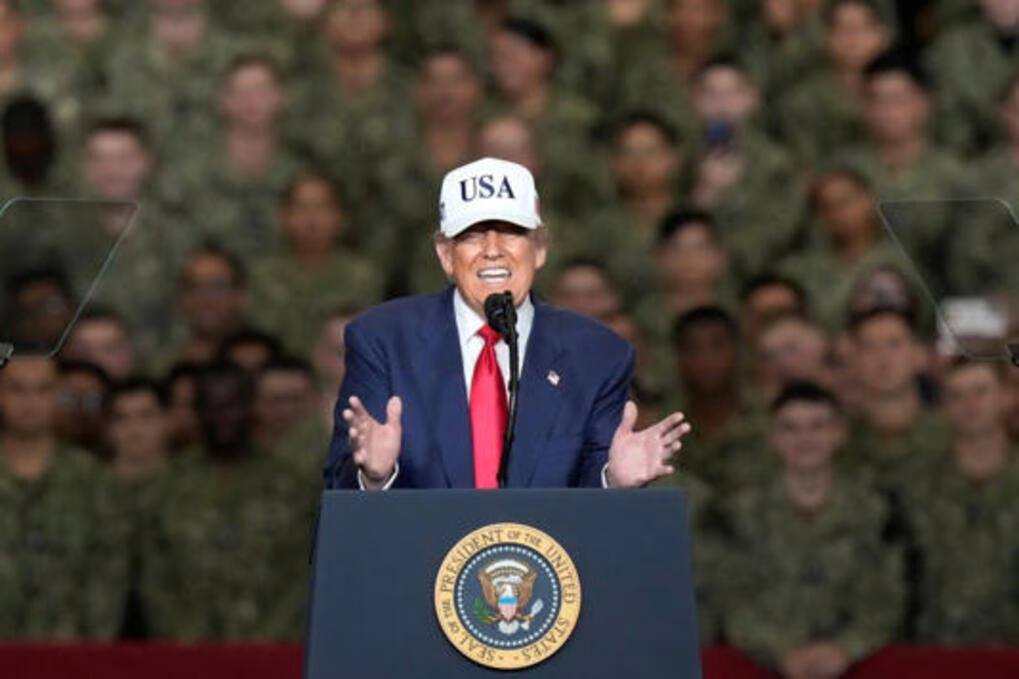By Don Terry | Tuesday, October 28, 2025 | 4 min read
During a speech to U.S. troops stationed in Japan, President Donald Trump once again stirred controversy—this time by suggesting he might deploy federal forces beyond the National Guard into American cities. Speaking from the deck of the USS George Washington in Yokosuka, Trump appeared animated, veering between praise for the military and ominous warnings about urban unrest. His tone was forceful, but the message left many unsettled: “We’re sending in the National Guard, and if we need more than the National Guard, we’ll send more than the National Guard,” he declared. “Because we’re going to have safe cities.”
The president’s words weren’t just off-the-cuff. They echoed a growing pattern of rhetoric that blurs the line between law enforcement and military intervention. Trump insisted that Americans “don’t care who the hell it is” as long as they feel safe—whether it’s the National Guard, active-duty troops, or even Space Command. The implication was clear: federal force is on the table, regardless of traditional boundaries or constitutional norms.
Observers have begun to question where Trump is drawing inspiration for these increasingly authoritarian gestures. Some critics speculate that he’s borrowing tactics from strongmen like Vladimir Putin, whose domestic crackdowns have long relied on military-style policing. Others point to a broader trend among populist leaders who use fear of crime and immigration to justify sweeping powers. The president’s offhand remark—“We can do as we want to do”—only deepened those concerns, suggesting a disregard for state authority and democratic checks.
Mental health professionals and political commentators alike have raised alarms about Trump’s erratic behavior. His speech in Japan was described by some as rambling, with sudden shifts in topic and tone. At one point, he mused about Space Command as if it were a domestic policing tool. At another, he dismissed the need for cooperation from governors and mayors, saying their support “doesn’t matter, really.” These moments have led to renewed speculation about his cognitive state, especially given his age and recent reports of medical evaluations.
Since reclaiming the presidency, Trump has made good on his promise to use the National Guard in major cities. Deployments have already occurred in Los Angeles, Washington, D.C., and Chicago, often in response to protests or spikes in crime. But the idea of going “beyond” the Guard raises legal and ethical questions. The Posse Comitatus Act, for instance, restricts the use of federal military personnel for domestic law enforcement. Trump’s casual dismissal of such constraints suggests either a lack of understanding or a willingness to test the limits of executive power.
His framing of urban violence as a “war from within” also struck a nerve. It’s language that militarizes domestic issues and paints American cities as battlegrounds rather than communities in need of support. For many, this rhetoric feels less like leadership and more like provocation. It risks inflaming tensions in cities already wary of federal overreach.
The backdrop of the speech—a naval base in Japan—added a surreal layer to the moment. Here was the president, thousands of miles from home, speaking to troops about cracking down on his own citizens. The optics were striking: a commander-in-chief invoking military might not against foreign adversaries, but against fellow Americans.
As Trump continues his Asia tour, meeting with leaders like Japan’s new Prime Minister Sanae Takaichi, his domestic agenda remains front and center. The contrast between diplomatic handshakes abroad and threats of force at home is stark. And for many watching, the question isn’t just what Trump plans to do next—it’s whether anyone can stop him before those plans become reality.



